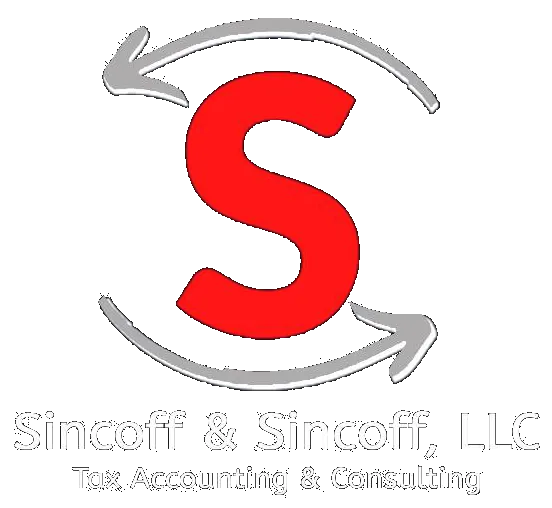Forensic auditing is a unique sector within accounting that merges investigative methods with financial knowledge to detect fraud, corruption, or financial missteps. Unlike standard auditing, which focuses on ensuring financial record compliance and accuracy, forensic auditing goes further by scrutinizing financial transactions for evidence of intentional misconduct or mistakes.
It is indispensable in legal cases, fraud inquiries, and promoting financial responsibility within companies. Sincoff & Sincoff is happy to assist with any and all forensic auditing services needed within the awesome state of New Jersey. Contact Us Today!
Lets Get Started!
What Is Forensic Auditing?

Forensic Auditing combines Accounting & Investigation
Forensic auditing involves scrutinizing a company’s financial statements, transactions, and processes to detect irregularities that could signal fraudulent conduct or other financial mishaps. The insights gained from these audits often provide vital evidence in court cases, whether in criminal charges, civil suits, or disputes concerning financial negligence.
Forensic auditors draw on a mix of analytical tools, investigative acumen, and accounting skills to track irregularities and piece together events that resulted in financial issues. Their work often involves working closely with legal teams, law enforcement, and corporate management.
Applications of Forensic Auditing
Fraud Detection and Prevention
A primary role of forensic auditing is spotting fraud occurrences. For instance, a forensic auditor might look into embezzlement cases where an employee siphons off company funds for personal use. By studying bank statements, transaction logs, and expenditure reports, forensic auditors can identify the fraud source and measure its financial impact.
Litigation Support
In legal disputes involving financial matters, forensic auditors often provide expert testimony. Take a shareholder lawsuit claiming a company board mismanaged funds; a forensic auditor might offer evidence to see if the claims are valid.
Insurance Claims & Corporate Investigations
Forensic auditing plays a critical role in verifying the validity of insurance claims, particularly in cases where fraud is suspected. Insurance companies often rely on forensic auditors to uncover evidence of deceit or manipulation in claims involving significant financial payouts. In situations like suspected arson, for example, a forensic auditor meticulously examines the policyholder’s financial records to identify potential motives for fraudulent behavior.
In such cases, the auditor might analyze financial statements, bank accounts, and payment histories to determine whether the policyholder faced severe financial pressures, such as overwhelming debts, declining revenue streams, or a failing business. These factors could indicate a motive for arson to secure a large insurance settlement. Beyond identifying financial stress, forensic auditors investigate anomalies such as unexplained transfers of funds, sudden changes in asset ownership, or recent increases in insurance coverage. These red flags may suggest premeditated fraud.
Forensic auditors may also collaborate with fire investigators and law enforcement to correlate financial findings with physical evidence from the fire scene. For instance, if accelerants are detected at the site of the fire, and financial records reveal substantial recent losses or unpaid loans, the combined evidence strengthens the case for potential fraud. Similarly, the auditor might uncover patterns of past fraudulent claims or discrepancies in the policyholder’s statements that further undermine the credibility of the claim.
This thorough and systematic approach ensures that insurance companies have the evidence needed to deny fraudulent claims while protecting their legitimate policyholders. By leveraging forensic auditing, insurers safeguard their financial resources, deter potential fraudsters, and maintain the integrity of the claims process. In this way, forensic auditing not only protects the insurer’s bottom line but also contributes to fairness and transparency within the insurance industry.
Firms may employ forensic audits to check on corruption or bribery claims. For example, if a multinational company worries that a subsidiary is involved in unethical deals with foreign officials, forensic auditors can review financial records to find potential bribery or unauthorized transactions.
Bankruptcy Proceedings & Tax Evasion Investigations
In bankruptcy cases, forensic auditors are crucial, examining the bankrupt entity’s financial documents to spot mismanagement or fraudulent asset transfers. This ensures fair treatment for creditors during proceedings. Agencies like the IRS often use forensic auditors to look into tax evasion cases. Auditors examine financial documents, income records, and spending reports to spot discrepancies pointing to income underreporting or inflated deductions.
Why Expert CPA Advice Is Crucial for Forensic Auditing
Forensic auditing is intricate and demands a thorough grasp of accounting principles, investigation tactics, and legal frameworks. Expert CPA guidance is vital to ensuring successful forensic audits for several reasons:
Specialized Knowledge, Compliance and Legal Insight
CPAs have an in-depth understanding of financial systems and accounting practices. This knowledge lets them spot subtle inconsistencies in financial documents that might escape less experienced professionals. Forensic audits play a vital role in legal proceedings, often uncovering financial misconduct, fraud, or irregularities that lead to litigation. Certified Public Accountants (CPAs) skilled in forensic auditing ensure that audit processes adhere to legal standards, safeguarding the credibility and admissibility of evidence in court.
A key aspect is maintaining a clear chain of custody for evidence. CPAs meticulously document every step, from gathering records to reporting findings, ensuring tamper-proof evidence. They apply relevant legal and accounting frameworks, such as Generally Accepted Accounting Principles (GAAP), to identify violations like embezzlement or insider trading.
CPAs also serve as expert witnesses, presenting complex financial data in understandable ways for judges and juries. Their expertise lends credibility, often influencing case outcomes. Forensic audits extend to civil disputes, such as contract breaches or asset misappropriation, providing financial clarity for settlements or judgments.
By adhering to unbiased and ethical practices, CPAs bolster the integrity of forensic audits, which are critical in cases involving fraud, disputes, or financial crimes. Their role in navigating finance and law ensures reliable evidence, helping uphold justice and preserve financial integrity. Without their expertise, the reliability of financial evidence in legal contexts would be compromised.
Objective Analysis & Efficient Use of Technology
CPAs provide an unbiased view in forensic examinations, focusing solely on uncovering the truth. Their objective approach enhances the credibility of their findings, whether in legal cases or internal reviews. Today’s forensic auditing heavily relies on data analysis and advanced software to manage extensive financial data. CPAs trained in forensic skills can use these tools to spot fraud or mismanagement patterns, trends, or anomalies.
Customized Solutions & Clear Communication
Each forensic audit is distinct, needing a custom approach. Expert CPAs evaluate the specific needs of the investigation, ensuring the audit addresses relevant queries and offers actionable insights. Forensic auditors often must explain complex financial issues to non-experts like judges, juries, or company stakeholders. CPAs skilled in forensic auditing excel at presenting their findings clearly and understandably.
Examples Highlighting CPA Contributions to Forensic Auditing
Case Study: Embezzlement in a Nonprofit Organization
A nonprofit suspected its treasurer was misusing donations for personal gain. A forensic CPA reviewed the group’s financial records, finding unauthorized withdrawals and fake expense reports. The outcome was recovering the stolen funds and reinforcing the nonprofit’s financial controls.
Case Study: Contract Dispute in Construction
In a conflict between a contractor and a developer over unpaid bills, a forensic CPA inspected the project’s financial records to determine if the contractor met their obligations. The CPA’s detailed report helped mediate the dispute, avoiding costly legal action.
Case Study: Tax Fraud Investigation
A business owner faced tax evasion accusations. A forensic CPA scrutinized the owner’s financial documents, finding discrepancies that backed the government’s allegations. The CPA’s testimony was crucial in securing a conviction.
The Role of Forensic Auditing in New Jersey’s Economy
In a vibrant and varied economy like New Jersey’s, forensic auditing is vital for maintaining financial integrity across sectors. With its bustling commercial centers, nonprofits, and financial institutions, New Jersey is ripe for fraud and financial mismanagement. Forensic auditing ensures accountability, protecting stakeholders and preserving trust in the state’s economic ecosystem.
New Jersey’s legal and regulatory environment also highlights the importance of forensic auditing. Companies in the state must meet stringent compliance standards, making expert CPA guidance essential for handling complex audits. Whether investigating corporate fraud in Newark, assessing insurance claims in Trenton, or resolving tax disputes in Monmouth County, forensic auditors are key to maintaining financial transparency and promoting economic stability.

